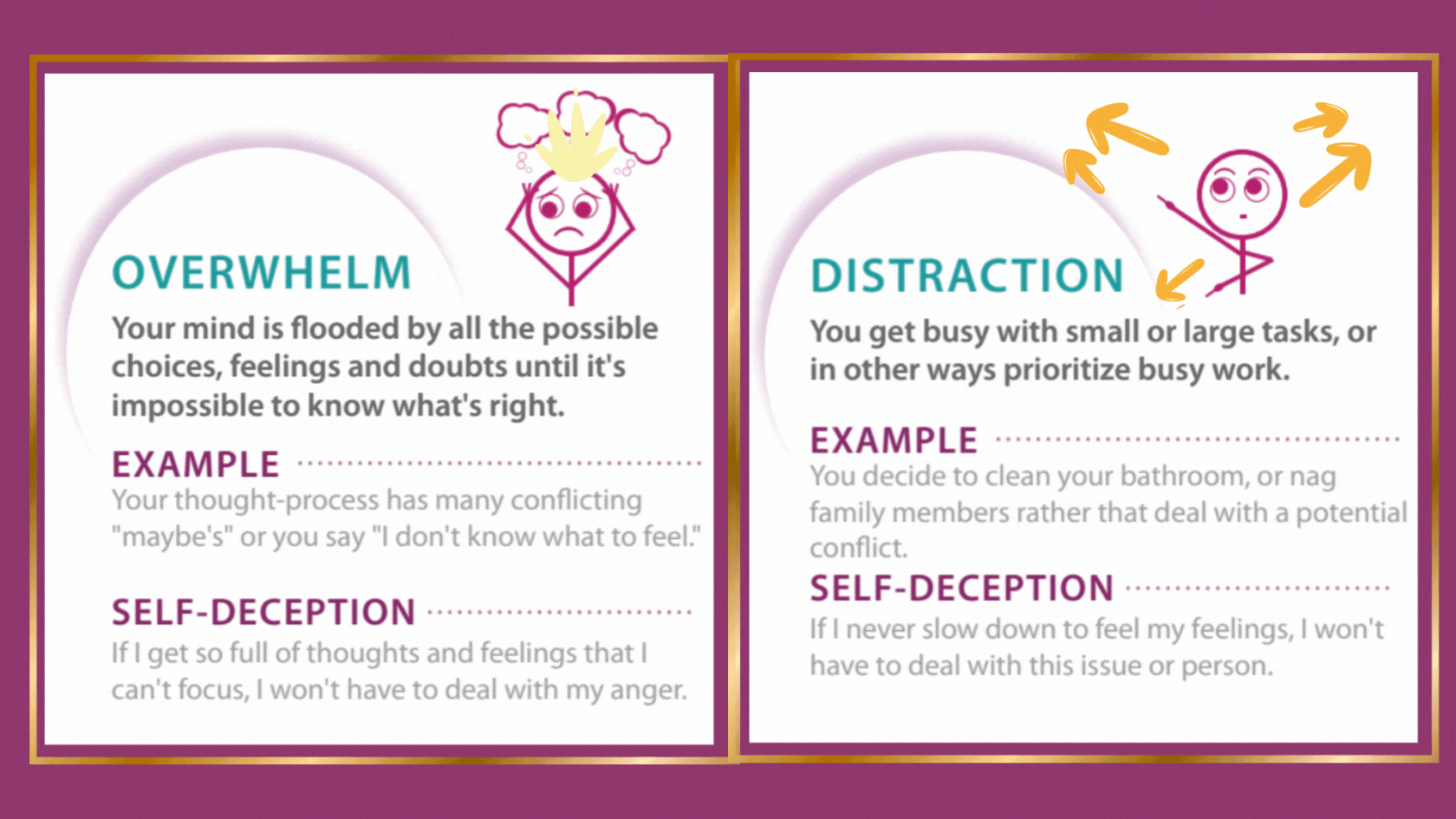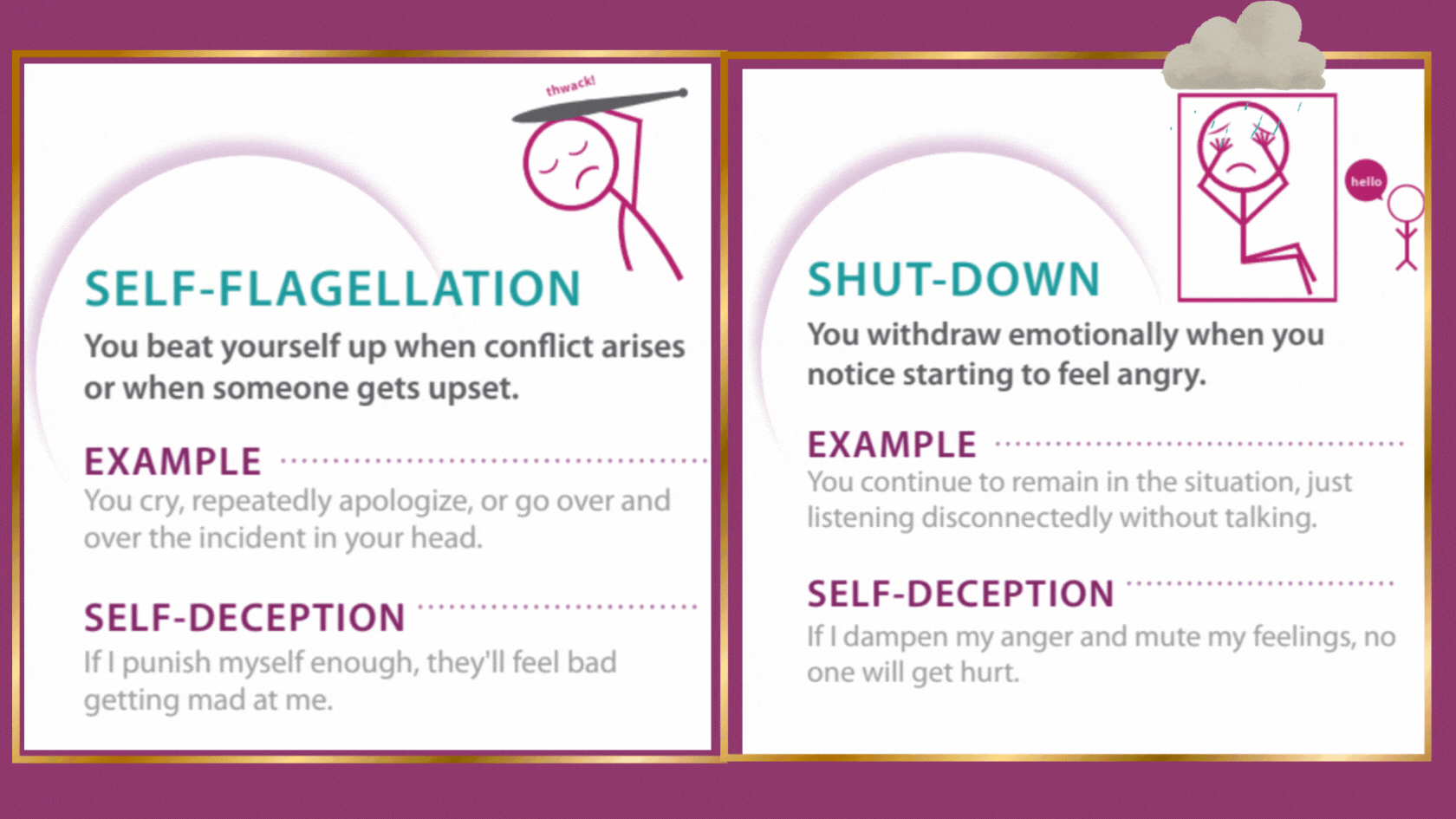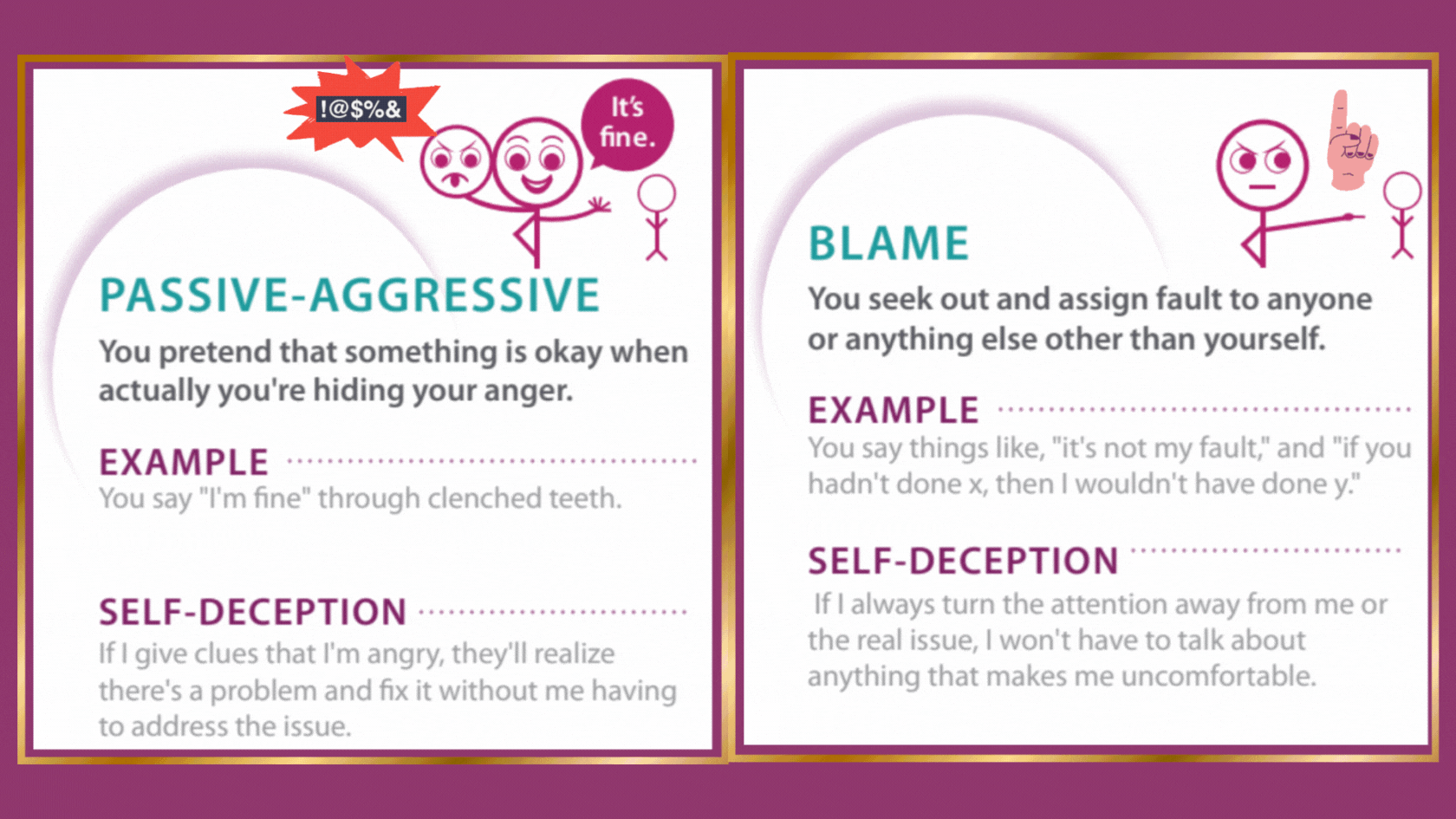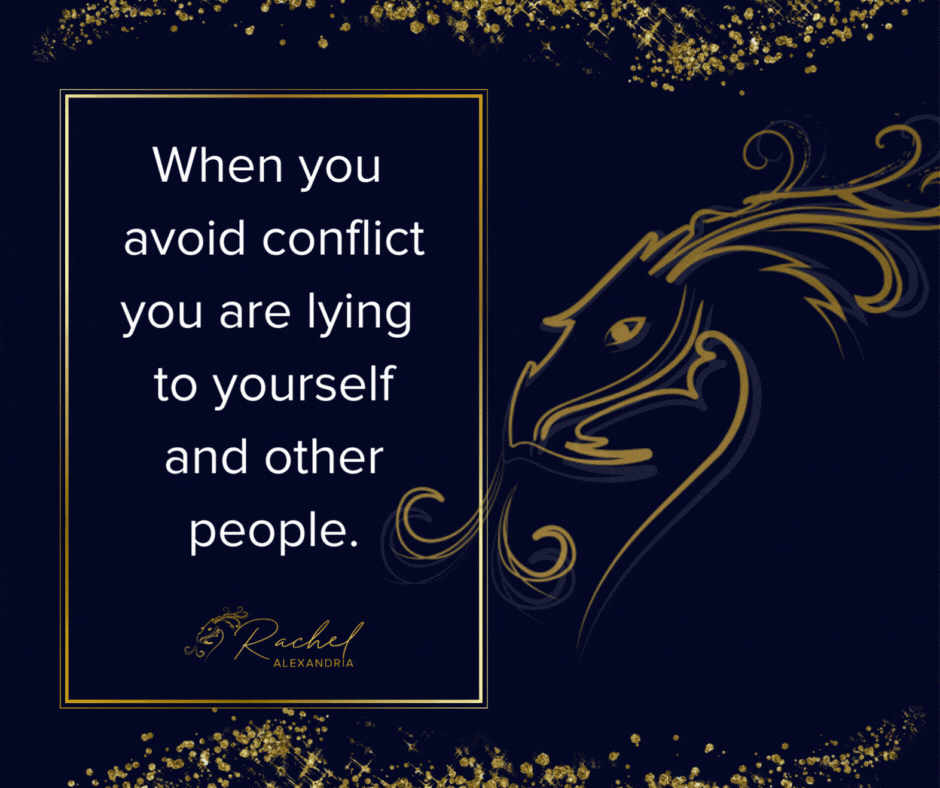Do you like conflict?
Okay, who says yes to that question? Only people who audition for reality shows, I think.
Here’s a very personal confession: I hate conflict. Like, HAAAATE it.
I used to believe that finding a way to avoid conflict was the best thing I could do for my relationships. But after my divorce from a fellow people-pleaser, I realized avoiding conflict meant we never processed the hard stuff. And that’s a death sentence for any long-term relationship.
Spending the next few years learning how to better deal with conflict, I developed a framework for how to prepare for hard conversations. In my research of how we deal (or don’t deal) with conflict, I identified six different styles people have for avoiding hard conversations.
Do any of these conflict-avoiding styles feel familiar to you?

With Overwhelm and Distraction, you are dissociating from your feelings about the conflict.

With Shut-Down and Self-Flagellation, you are bullying yourself rather than confronting the actual situation.

With Blame and Passive-Aggression, you are deflecting your anger onto others rather than processing it.
The styles I would use to avoid conflict were Shut-Down and Self-Flagellation. Whenever there was a conflict emerging in any relationship, I would either beat myself up for my part, or shut down if I felt my anger rising.
In both cases, I was scared of not knowing how to manage conflict in a healthy way that didn’t cause harm to me or others.
In all of these six styles, you have emotions that are trying to speak to you about your needs and boundaries, but instead of channeling the emotions into mindful action, you are repressing crucial information in yourself.
Essentially, when you avoid conflict, you are lying to yourself and/or other people.

Aren’t you tired of avoiding the hard talks? Wouldn’t it be a relief to learn to have those with confidence and compassion?
The way to stop being terrified of conflict is to practice being brave and facing the truth. I call this radical self-honesty, and it’s a foundational teaching in my group program, Soul School.
Learning to be brave in the face of hard talks is a skill. It’s okay if you don’t already know how to do it! In fact, I created Soul School BECAUSE there were so many things most of us never learned from our families or academia.
Having a community to learn and practice emotional and relational skills with is priceless. Any time you join a group program, the biggest benefit is the experience of being with people who share your struggles and validate your wins because you no longer feel alone.
It’s time for the good-hearted, deep souls to have the master skills you need to stay balanced and grounded in this messy world. Soul School is here to help.
To our development, together.







